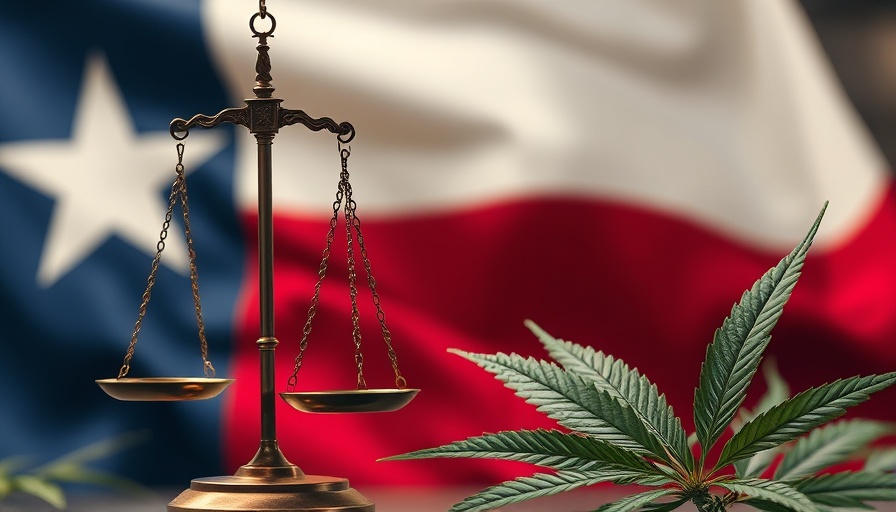
Texas Governor Abbott's Groundbreaking Decision on THC Regulation
In a significant shift in Texas legislative policy, Governor Greg Abbott vetoed a proposed ban on THC products, paving the way for a regulatory framework instead. This unexpected move has stirred tensions within the state government, igniting debates about public safety, legal implications, and the future of the hemp industry in Texas.
The Controversy: Understanding the THC Ban
The vetoed Senate Bill 3 would have enacted a total ban on consumable hemp products containing THC, which includes popular items like delta-8 and delta-9 products. Lt. Governor Dan Patrick, a powerful figure in Texas politics, had championed this bill as part of his top legislative priorities for nearly two decades, advocating that a ban was necessary to protect consumers—especially children—from the perceived dangers of high-potency THC products. Protecting youth from the risks associated with cannabis is a concern that resonates strongly with many Texans.
Political Implications: A Divided Leadership
Governor Abbott's veto comes amid heightened political pressure, showcasing a divide within the state's leadership. The response from Lt. Governor Patrick has been sharp; he accused Abbott of abandoning families affected by harmful THC products. This rift highlights a broader debate on how Texas should handle the increasingly popular hemp industry while ensuring public safety. As Abbott prepares for a special session starting July 21 to discuss regulation instead of prohibition, the focus will shift towards how this industry will be governed moving forward.
Public Safety and Regulatory Framework: Moving Forward
Governor Abbott emphasized the need for a comprehensive regulatory regime over a complete ban, arguing that a ban would create unnecessary legal conflicts given federal laws that legalize certain hemp products, as per the 2018 Farm Bill. Abbott's proposed regulations include measures that align with alcohol regulations, which may include age restrictions on sales and marketing of THC products, mandatory testing at various production stages, and local control over store operations selling these items. These suggestions aim to enhance public safety while still supporting the industry.
Industry and Consumer Reactions: A Balancing Act
Supporters of the veto argue it protects the burgeoning hemp industry in Texas, which contributes significantly to the state’s economy. These advocates believe that regulation, rather than outright bans, will foster a safer market while still allowing for consumer access to these products. However, critics argue that allowing the sale of potentially dangerous THC-infused products, especially those marketed towards younger consumers, can have devastating consequences. The path the regulations take will be closely watched by both those in support of the hemp industry and its opposition.
The Future of THC in Texas: What Lies Ahead?
As Abbott prepares for the upcoming legislative session, many questions remain about the specific regulations that will be proposed. Will these proposed guidelines be sufficient to ensure public safety? How will they affect the industry’s growth and consumer access? These questions will drive discussions as organizations, lawmakers, and citizens alike weigh in on the essential need for a balanced approach to regulation.
Understanding State and Federal Law: A Complex Landscape
With the legal landscape surrounding cannabis products evolving, understanding the conflict between state and federal law is crucial. The Farm Bill not only legalized hemp-derived products but also created a patchwork of regulations across states. Texas, through this recent legislative move, may be setting a precedent for how states can navigate these complexities in a way that is both lawful and sensitive to public concerns.
Call to Action: Engage with the Legislative Process
The decision made by Governor Abbott presents an opportunity for individuals and organizations to engage in the legislative process. As discussions take place about how to best regulate THC in Texas, it’s essential for citizens to stay informed and voice their opinions. Participating in local discussions or reaching out to state representatives can influence the regulatory framework that will ultimately impact public health and industry viability.
 Add Element
Add Element  Add Row
Add Row 



Write A Comment